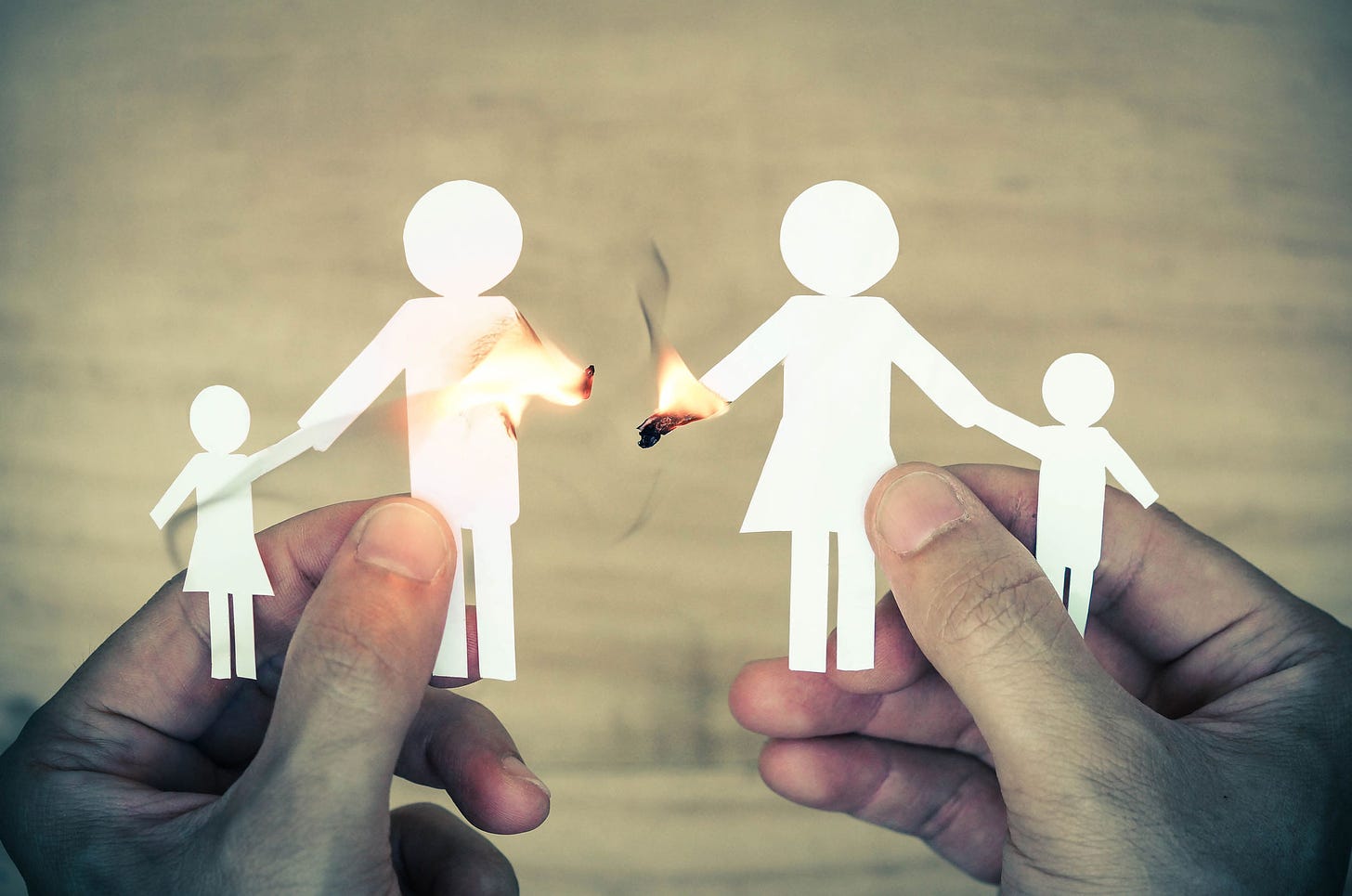Conservatives, ‘talking’ about family structure won’t improve education

My grandmother told me something years ago that maybe you were told too: “Show me your friends and I’ll tell you who you are.”
I wonder what she would make of my friend (and my favorite conservative) Mitch Pearlstein who founded Center of the American Experiment, a conservative think tank?
We don’t catch up nearly enough, so I was happy to have him join my morning broadcast to talk about the thing that has been our binding point of interest — if not our eternal point of simultaneous agreement and departure — for as long as we’ve known each other: the importance of focusing on family “fragmentation” and its attendant impact on student achievement.
In my view, the insistence of conservatives that educational outcomes would change if only we get people talking about family structure feels more emotive and ideological than usable in any practical sense.
I concede that Mitch’s main argument is strong to the point of seeming insurmountable. Family structure is, empirically speaking, a major barrier to social progress. When you compare the GPAs, graduation rates, discipline rates, and other important outcomes of children in homes with two parents who are married versus all other structures, it is clear that there is an advantage to married families.
It’s difficult to argue against the positive benefits of children having intact, supportive, nurturing families, but I see three points that complicate the conservative picture.
First, too often the focus on family as a policy lever feels more like a clever sidestep that’s used to defeat arguments about structural racism and other societal factors that exist outside the control of individuals.
For example, so-called “broken” families didn’t put so much lead in the city of Flint’s water that it caused learning delays in children. Fatherlessness didn’t crowd low-rated teachers who weren’t taught how to teach the subjects they teach into classrooms full of poor, non-white children. Single moms didn’t draw the boundaries that redline Black and brown children into low-opportunity, ghettoized education deserts where it’s easier to find a gun or drugs than a school with a coherent educational philosophy, high expectations or a strong curriculum.
Second, there is a practical problem with the family structure obsession. Its premise could be the truest of all truisms, but I don’t see a solution that can pragmatically be addressed by policy makers.
How do they propose society scale up the proportion of two-parent families? What is the catalyst for the desired growth of intact families? Where is our evidence that the appreciation of traditional marriage and active fatherhood will change for the better anytime soon?
I don’t see it. So, knowing that family structures aren’t likely to trend the way conservatives believe they should, what’s our incentive as education advocates to focus on something unlikely to drive policies that make a difference in the lives of students?
Finally, my conservative friends rightfully point out the harm done to poor children by welfare programs that alienated fathers from participation in their families. But these same conservatives fail to admit how their own policies hurt Black families and communities too.
The clearest example is the retributive war on drugs which militarized police departments and took fathers out of mostly urban communities, out of the lives of children, out of the economy, and out of the pool of potentially married people.
Writing in the Undefeated about how the effects of that problem hit the Black community, Dominique Warren says:
The American presidency from 1970 to 2005 focused on “Law and Order” to combat drug trafficking and violence, resulting in 1 in 9 black children currently having an incarcerated parent. Ninety-two percent of parents in prison are fathers, and an overwhelming proportion of these fathers are black.
Yes, it’s a hopeful sign that President Trump, Jared Kushner, and Sen. Rand Paul have found common cause with Meek Mill, Kim Kardashian and Kanye West on passing nominal criminal justice reform legislation, but, remember, this comes two years after the Trump administration moved to end Obama-era reductions in mandatory sentencing for drug crimes.
Look at everything from commerce to law, education to housing, environment to medicine—in all of these policy areas, race and class stand stubbornly as forces with all the gravity that conservatives attribute to family formation. Conservatives are largely silent on what corrects those impactful sins. While many bloviate about personal behavior and the want of responsibility on the part of racial minorities, they won’t call for a moral change in behavior or responsibility of the barons of industry and the masters of government who control inequitable systems.
If there will be a productive coalition working to improve education, it will take brave conversations, evidence-based agreements, and ideological flexibility from all sides of the debate. Liberals will have to face the undeniable research on the importance of family, even while recognizing the impact of systems that do not work equally well for everyone. Conversely, conservatives will have to also recognize the indisputable evidence we have of structural factors beyond families.
I’m not hopeful about movement from either the left or right on the things they find disagreeable about each other, but it would be a shame if they let their pet issues take focus from the things we all know are important like preparing great teachers with evidence-based strategies, building schools with coherent educational philosophies, and providing the resources needed to optimize the success of students whatever their race or location.
The post Conservatives, ‘talking’ about family structure won’t improve education appeared first on citizen stewart.



